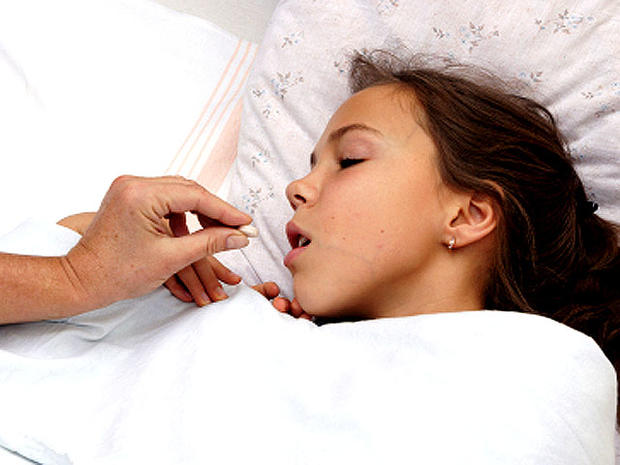H1N1 flu deadly for some kids, new study suggests why
(CBS) The epidemic of H191, swine flu, in 2009 led to the deaths to a surprising number of healthy kids. Researchers may finally have an answer why.
PICTURES: Flu vaccine: 15 states that say no to the needle
A shocking new study suggests a healthy child can be eight times more likely to die from the flu if they have MRSA.
During the 2009 pandemic, having the H1N1 flu at the same time of the so-called methicillin-resistant Staphylococcus aureus (MRSA) bacteria was found to be a fatal combo, despite almost all of these children undergoing treatment with another antibiotic. The findings alarmed researchers.
"There's more risk for MRSA to become invasive in the presence of flu or other viruses," study author Dr. Adrienne Randolph, critical care researcher at Children's Hospital Boston, said in a written statement. She called these deaths "a warning sign."
For Randolph's study, published in the Nov. 7 issue of Pediatrics, researchers tracked 838 children admitted to 35 pediatric intensive care units across the country during the 2009 H1N1 pandemic. Seventy-five of the children died - two-thirds of them within two weeks of being admitted to the ICU.
Most of the admitted children had another chronic disease, but 30 percent were healthy. The researchers said it's rare for previously healthy kids to die this way, but in these cases, the MRSA caused pneumonia that damaged the children's lung tissues.
"Some children were quickly overwhelmed, and many died despite centers doing everything to save them," Randolph said. "It's not that flu alone can't kill - it can - but in most cases children with flu alone survived."
What do the researchers recommend? Get any child who is experiencing flu symptoms treated immediately. Only 6 percent of the children received the antiviral drug Tamiflu before they were admitted the hospital, and Randolph said that could've saved some of these kids' lives since Tamiflu works best when it's given within two days of the onset of symptoms.
The researchers also said one approach was urgently needed: Vaccinate all kids six months and older for H191, since the virus is expected to return this season.
"MRSA is hard to develop a vaccine against - researchers have been trying since the 1960s and have been unsuccessful," Randolph said in the statement. "So the only way to prevent these severe complications is to get everyone vaccinated against the flu, and do more studies of MRSA colonization so we can prevent it in the community and in kids."
The CDC has more on H1N1.

